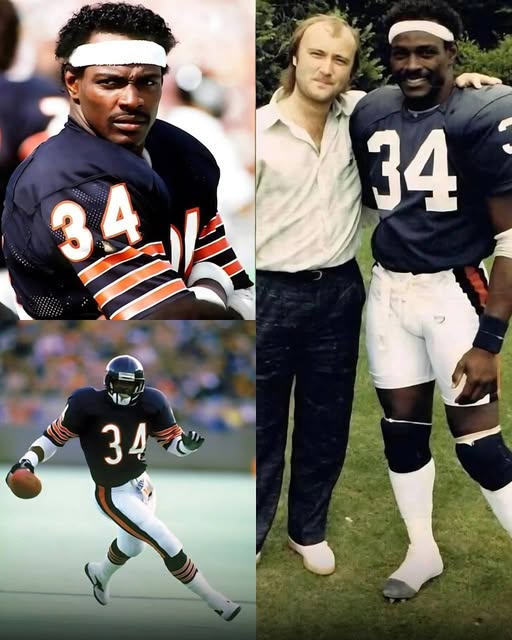
When Walter Payton stepped onto the stage of the 1975 NFL Draft, he wasn’t just walking into a league — he was walking into the burdened history of a city, a legacy once carried by Gale Sayers, now reduced to whispers after years of losing seasons. The Chicago Bears were desperate for hope. What they got was something far greater.
Walter Payton, affectionately known as “Sweetness,” embodied more than just athletic prowess; he symbolized resilience, determination, and an unyielding pursuit of excellence. Selected as the fourth overall pick, Payton brought with him a collegiate record from Jackson State University that hinted at greatness. However, Chicago’s expectations were tempered. The team had struggled mightily, and fans were skeptical that one player could change their fortunes.
But Payton wasn’t just any player. From the moment he donned the Bears’ uniform, it was evident that he possessed a unique combination of talent and work ethic. His rookie season showed flashes of brilliance, but it was the years to come that solidified his place in NFL lore. Payton’s running style was a study in contradiction: graceful yet punishing, evasive yet confrontational. He didn’t just avoid tackles; he sought to finish every run with purpose, often leaving defenders in his wake.
Off the field, Payton’s charisma and humility endeared him to the Chicago community. In a city grappling with economic struggles and a storied franchise’s faded glory, Payton’s relentless spirit was a beacon. He didn’t just carry the football; he carried the hopes of a city yearning for a return to prominence.
By the late 1970s, Payton had firmly established himself as one of the league’s premier running backs. In 1977, he delivered a season for the ages, rushing for 1,852 yards and earning the NFL Most Valuable Player award. One iconic moment from that season came on a bitterly cold November day against the Minnesota Vikings. Battling the flu, Payton rushed for 275 yards, setting a single-game record that stood for decades. It was a performance that encapsulated his toughness and determination.
Despite Payton’s individual brilliance, team success eluded the Bears for much of his career. The turning point came in the mid-1980s with the arrival of coach Mike Ditka and a revamped roster. The 1985 Bears, with Payton as their cornerstone, dominated the league en route to a Super Bowl victory. Though Payton didn’t score in the championship game, his contributions throughout the season were immeasurable. He was the heart and soul of a team that blended swagger with substance.
When Payton retired after the 1987 season, he left as the NFL’s all-time leading rusher, a record he held until 2002. But his impact extended far beyond the gridiron. In retirement, Payton devoted himself to philanthropy, using his platform to give back to the community he loved. His untimely passing in 1999 at the age of 45 was a profound loss, but his legacy endures.
Today, Walter Payton is remembered not just as one of the greatest players in NFL history, but as a symbol of perseverance and grace. The annual Walter Payton NFL Man of the Year Award, given to a player who exemplifies excellence on and off the field, ensures that his spirit continues to inspire future generations.
For Chicago, Payton was more than a running back. He was the embodiment of hope, the bridge between past glory and future promise. In Sweetness, the Bears found a hero, and the city found a legend.







